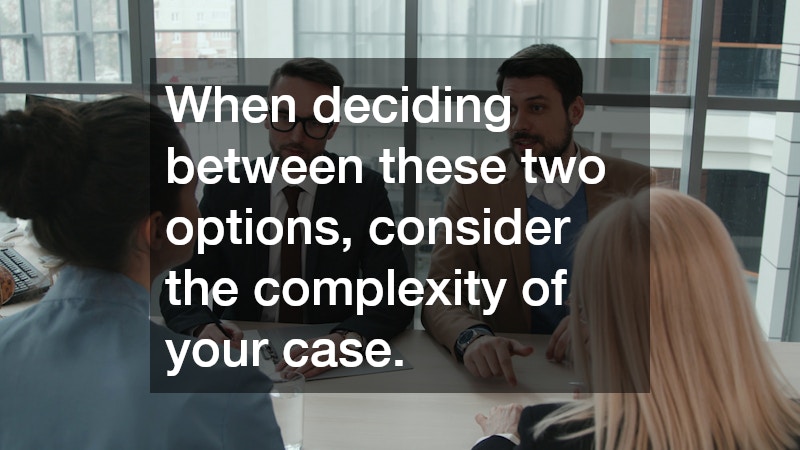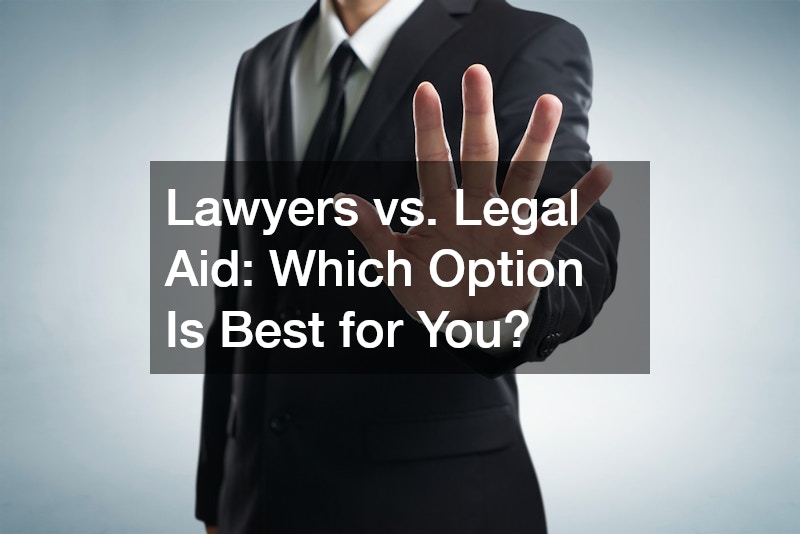When facing legal issues, one of the first choices you may encounter is whether to hire private lawyers or seek help from legal aid services. This decision can influence the outcome of your case, the experience you have during the legal process and the costs involved.
Understanding the differences between these two options can help you make the right choice based on your circumstances.
What Private Lawyers Offer
Private lawyers usually work for law firms or in independent practice. When you hire a lawyer privately, you are paying for their time, experience and focus on your specific case. This often comes with personalised attention and quicker response times. Private lawyers typically manage fewer cases than legal aid lawyers, which can result in more detailed case preparation.
You can also choose a lawyer who specialises in your particular legal matter. Whether you’re dealing with family law, criminal charges, business matters or property disputes, there are lawyers who focus on those areas and understand the most current laws and strategies to use. This tailored expertise can lead to better outcomes, especially in complex cases.
However, the main drawback of hiring private lawyers is cost. Legal fees can vary widely depending on the lawyer’s experience, location and how long your case takes. While some offer fixed-fee services, others may charge by the hour, which can quickly add up in lengthy cases.
How Legal Aid Works
Legal aid services are designed to support people who cannot afford to pay for private legal representation. These services are often funded by the government and are available for specific legal matters such as criminal defence, family law and some civil issues like tenancy or domestic violence cases.
Legal aid offices often have strict eligibility requirements. Your income, assets and the nature of your legal issue will be reviewed to determine if you qualify. If accepted, you may receive free or low-cost legal advice, assistance with paperwork or full representation in court.
The lawyers working in legal aid are qualified professionals, but they tend to manage a higher volume of cases. As a result, they may have less time to devote to each client compared to private lawyers. Delays in communication or court preparation can sometimes occur, depending on the workload of the office and staff available.
Choosing Based on Your Legal Needs
The choice between private lawyers and legal aid often comes down to the type of legal issue you’re facing and your financial situation. If you have a complicated or high-stakes matter, and you can afford it, hiring a private lawyer may provide more peace of mind and individual attention. This can be particularly important in areas like corporate disputes, large asset divorces or immigration cases.
On the other hand, if your case falls into a category covered by legal aid and you meet the eligibility criteria, this service can be a lifeline. It ensures that all Australians, regardless of income, have access to legal support when they need it most.
It’s also worth noting that some private lawyers offer initial consultations at a reduced cost or even for free. This can give you a clearer understanding of your options and help you decide if investing in private representation is worthwhile.
Accessibility and Support
Legal aid is more accessible in larger cities, while rural or remote areas may have limited services. Some legal aid services also provide telephone advice or outreach clinics, but in-person representation can be harder to access.
Private lawyers are generally easier to reach and can adjust their services to your schedule. They may offer appointments outside standard business hours, provide faster turnaround on documents and keep you updated more frequently.
Regardless of the path you choose, make sure the person representing you is someone you trust. Communication, understanding and mutual respect play a big role in the success of any legal relationship.
Both private lawyers and legal aid services serve important roles in Australia’s legal system. Each offers different benefits depending on your needs and financial situation. Private lawyers can provide expert guidance and more personalised support, while legal aid ensures access to justice for those who may not otherwise afford it.
When deciding between these two options, consider the complexity of your case, your budget and how much personal attention you believe you’ll need. By weighing these factors carefully, you can make a choice that supports the best possible outcome for your legal matter.





